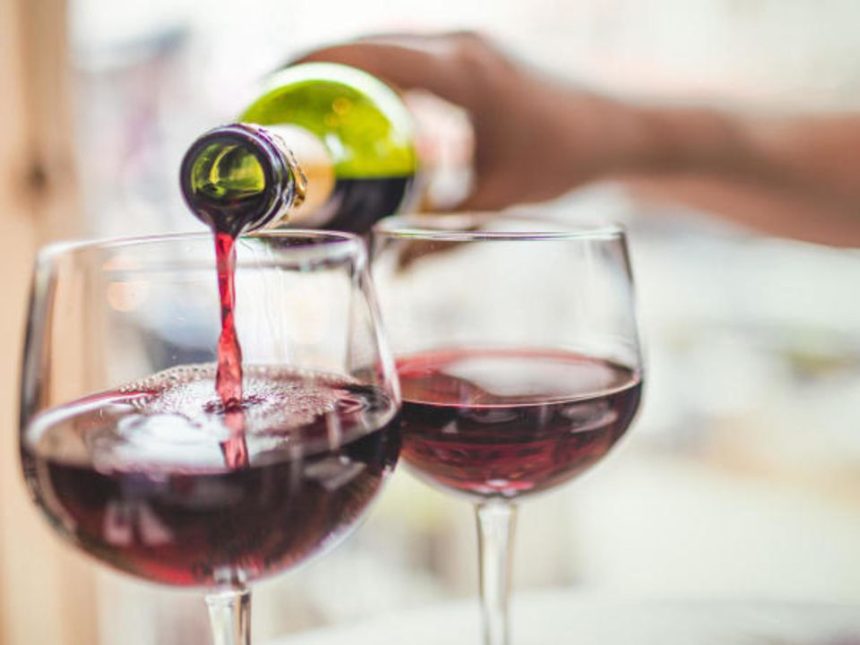We’ve all been there: You opened that last bottle of wine as the night was winding down and before you knew it, the party was over and you were left with a half-full bottle of Chardonnay. Rather than pouring it down the drain with the rest of your guests’ liquid leftovers, you should absolutely store that wine away for another day. After all, Mama always said, “waste not, want not!” and we’d be fools to ignore her advice. If you find yourself with a little extra vino in the bottle after a gathering, girls’ night, or even just a regular old weeknight dinner, follow these tips to keep your wine lasting longer and tasting just as delicious the second go around.
How to Store Leftover Wine
According to Trent Stewart, co-owner of Golden Age Wine in Birmingham, Alabama, the best way to store wine is by putting the screwcap or cork back on the bottle and placing the bottle in the refrigerator. Says Stewart of his chosen method, “As the owner of a busy wine bar where we typically open a few dozen bottles of wine a night, wine storage is extremely important. After quite a bit of experimentation at the bar, and during my former job as a wine distributor sales rep, I’ve landed on a fairly simple way to store wine.” Stewart says keeping wine at a low temperature is one of the most effective ways to slow the deterioration of wine once a bottle is opened.
Master Sommelier Thomas Price, who works at Auburn University’s 1856 Restaurant and is the state of Alabama’s only master sommelier, agrees that 24 hours is the magic number. “Whites and reds just need the cork back in tight and to be put in the fridge,” he says. “Refrigeration is the constant. The key is getting rid of oxygen in the bottle and consuming it sooner than later.”
How to Store Leftover Red vs. White Wine
Regardless of type—red, white, rose, or sparkling—all wines should be stored in the refrigerator after opening. The temperature you prefer to drink the wine at can always be adjusted once you’re ready to reopen the bottle. “Don’t worry about chilling down red wine to refrigerator temperature, it will not hurt the red wine,” Stewart explains. “Just pull it out 30 minutes before serving, and it will be the perfect serving temperature.”
How Long Does Leftover Wine Last in the Refrigerator?
Though leftover wine won’t become poisonous or “spoiled” if you leave it in refrigerator for too long, its taste and quality can rapidly diminish once it has been open for more than 24 hours, according to Stewart. At his wine bar, they never serve wine that has been open for longer than one day, and he recommends that home wine enthusiasts implement the same rule. “In my experience, wines hold up very well for that period of time, and sometimes they can even evolve into something better. But again, follow the 24-hour rule!”
Price agrees that 24 hours is the longest leftover wine should be stored, but with a couple of exceptions. “Port and Madeira—sometimes complex reds are amazing after a day or two,” he explains.
Tools to Help Store Wine
If you have a hard time getting your cork back in the bottle or want a more secure covering, try a wine stopper. Wine begins to oxidize the second a bottle is opened, and a stopper can go a long way in slowing down that process. Our friends at Food & Wine tested several models, and found the best ones for keeping wine fresh.
For those who regularly drink sparkling wine, Stewart recommends a champagne stopper. “It is critical with bubbly that you maintain the effervescence, and a regular cork or stopper will not do it. It is likely that the pressure within the bottle will push the regular stopper out after a period of time,” he says. Instead, try the Le Creuset Champagne Stopper, which will keep your favorite sparkling wine from losing its sparkle the next day.
For serious wine drinkers, Price recommends a Coravin Wine Preservation System. Though considerably more expensive than a simple wine stopper, a wine preservation system can keep wine fresh for weeks or even years by introducing neutral gas to the bottle.
Alternative Uses for Leftover Wine
If you ever find that your leftover wine is past its prime—maybe it got shoved to the back of the fridge and forgotten or maybe you simply didn’t get around to finishing it—don’t give up on it just yet. “You can cook with an open bottle of wine for a long time, even after it’s not drinkable,” Stewart says. Depending on what type of wine you have leftover, check out our guide to cooking with white wine, or whip up a pot of our favorite Slow Cooker Bolognese Sauce that gets an extra oomph from the addition of red wine.






